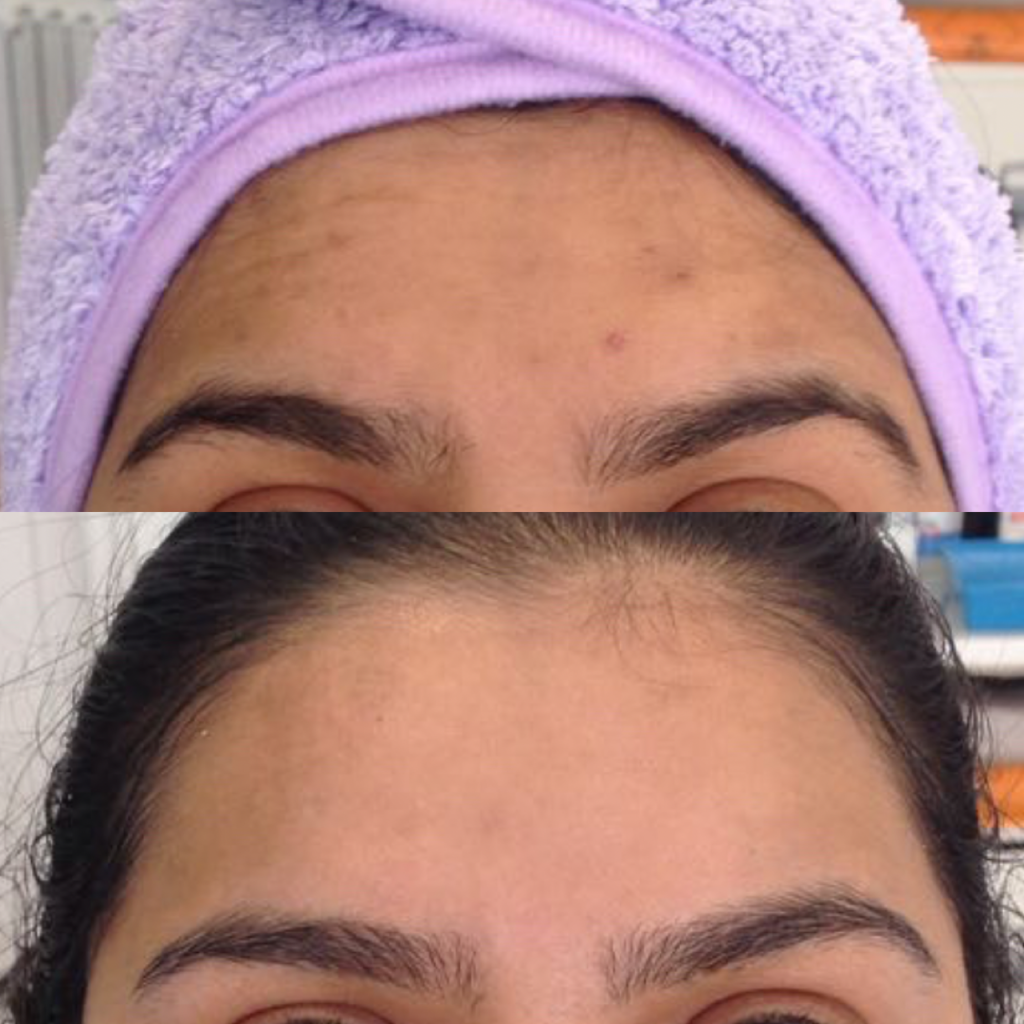As winter sets in and the temperatures drop, our skin faces new challenges. From dry, irritated patches to increased sensitivity, cold weather can bring a range of skin concerns that are not as prevalent in the warmer months. At SkinHD, we believe in taking proactive steps to combat these winter skin woes and keep your complexion radiant all season long.
Let’s dive into some of the most common skin concerns that tend to surface in winter, and how you can care for your skin to keep it looking and feeling its best.
Dryness and Dehydration
Cold, dry air combined with indoor heating can strip moisture from the skin, leading to dryness, tightness, and flakiness. The skin’s natural barrier can become compromised, which makes it harder for the skin to retain moisture. Lips and hands are especially prone to dryness, with chapping and cracking becoming common complaints.
Symptoms:
- Tight, dry patches
- Rough texture
- Flakiness
Why it happens:
The lower humidity and dry indoor
can pull moisture from your skin. With reduced oil production, the skin becomes more prone to dehydration.

Tips for Managing Dry Skin:
Moisturise, moisturise, moisturise: Use rich, hydrating creams that help lock in moisture. Look for products with Hyaluronic Acid, ceramides & glycerine.
- Facial treatments: Hydrating facials and treatments like Profhilo (a deep hydration injectable treatment) can work wonders to restore moisture.
- Avoid hot showers: Hot water can further dry out your skin, so opt for lukewarm showers and use a gentle, hydrating cleanser.
- Consider a lower strength retinol: High strength vitamin A products can be irritating to the skin, causing further dryness or irritation. Using a lower strength or reducing the frequency of use (e.g. every other night rather than daily) can help reduce dry, flaky skin.
Increased Sensitivity
Winter can weaken your skin barrier, making it more sensitive to external triggers. This is particularly challenging for those with conditions like eczema, rosacea or psoriasis, which may flare up in response to cold air or drying products.
Symptoms:
- Persistent redness
- Visible capillaries
- Burning or stinging sensations.
Why it happens:
The skin’s barrier becomes weakened, making it more susceptible to environmental triggers like cold weather, indoor heating, or even stress.
Tips for Managing Increased Sensitivity:
- Reinforce your barrier: Choose moisturisers or balms rich in emollients like shea butter or jojoba oil. Use products with ceramides and niacinamide to strengthen the skin’s natural barrier and keep the skin calm.
- Avoid harsh ingredients and triggers: Cut back on exfoliating acids or strong actives like retinoids and focus on calming formulations. Keeping a track of when your symptoms flare can help identify common triggers such as spicy foods, alcohol, caffeine or extreme temperatures
- Professional treatments: Options like Laser Genesis or Limelight IPL can help calm redness and improve overall skin tone by reducing visible capillaries and stimulating collagen production.
- Consult a professional: For severe flare-ups, speak to your GP or book a consultation to explore prescription options.
Dullness and Lack of Glow
The combination of slower cell turnover and dehydration can leave your skin looking dull and lacklustre in winter. Without proper exfoliation and hydration, your natural radiance may be buried under a buildup of dead skin cells.
Tips for Managing Dull Skin:
- Boost hydration: Incorporate serums with Hyaluronic Acid and follow up with a ceramide-rich moisturiser to keep skin plump and glowing.
- Gentle exfoliation: Use a PHA-based exfoliant to remove dead cells without irritating the skin.
- SkinHD treatments: Treatments like microneedling or chemical peels are great for boosting cell turnover and restoring luminosity.
Blemishes and Breakouts
Winter weather can sometimes confuse your skin, leading to a shift in oil production. While your skin may feel dry on the surface, your sebaceous glands can overcompensate by producing excess oil, clogging pores, and triggering breakouts.
Symptoms:
- Clogged pores
- Cystic acne
- Blackheads
Why it happens:
The skin becomes dehydrated and overcompensates with increased oil production, which can lead to acne, especially around the chin and jawline.
Tips for Managing Winter Acne:
Non-comedogenic products: Be mindful of the skincare products you use. Opt for oil-free and non-comedogenic moisturisers that won’t clog your pores.
- Gentler exfoliation: Replace harsh exfoliants with mild options like PHA toners, which help clear dead skin without causing irritation.
- Chemical Peels: A great way to keep the skin clear during the colder months is with a chemical peel. This treatment helps clear out pores and boosts cell turnover.
- Microneedling: This treatment not only targets acne scars but also improves skin texture, stimulates collagen production and reduces breakouts.
Pictured below: Results after copmpleting a course of 4 x light chemical peels

Hyperpigmentation and Dark Spots
Even though the sun may seem far away in winter, UV exposure still affects your skin. In fact, pigmentation issues like melasma and age spots can become more noticeable as the colder months tend to leave the skin looking duller and more uneven.
Symptoms:
- Brown or grey patches on the skin, particularly on sun-exposed areas like the forehead, cheeks, and upper lip.
Why it happens:
Even in winter, UV radiation can cause pigmentation to worsen, especially if you’re not using proper sun protection.
Tips for managing Pigmentation:
- SPF, always: Always use a broad-spectrum SPF 30+ sunscreen, even on cloudy or overcast days. UV rays can still penetrate through the clouds.
- Brightening Serums: Vitamin C and Tranexamic Acid help to brighten the skin and reduce the appearance of pigmentation.
- Laser treatments: Laser Genesis and Limelight IPL are both great options for treating pigmentation. These treatments target excess melanin, helping to even out skin tone.
Want to see how we perform a Limelight IPL Laser treatment? Just click the link below to head over to our Instragram reels!
Our General Winter Skin Care Tips
- Hydrate from within: Drink plenty of water to keep your skin hydrated from the inside out. Adding collagen supplements to your diet may also support collagen production and help maintain skin elasticity and hydration during the colder months.
- Use a humidifier: To help maintain moisture levels in the air, consider using a humidifier in your home, especially in the bedroom at night.
- Gentle exfoliation: While you want to avoid over-exfoliating, gently removing dead skin cells once a week can help to brighten the skin and allow moisturisers to penetrate better.
Book Your Personalised Skincare Consultation
Everyone’s skin reacts differently to winter, and finding a routine that suits your individual needs is key. At SkinHD, we offer personalised skincare consultations and have partnered with GetHarley to help you create a skincare plan that’s tailored to your specific concerns. Whether you’re struggling with dryness, pigmentation, or sensitivity this winter, our experts can create a personalised plan to keep your skin healthy and glowing.
Book your consultation today and give your skin the care it deserves!
Follow us over on social media by clicking the buttons below!

